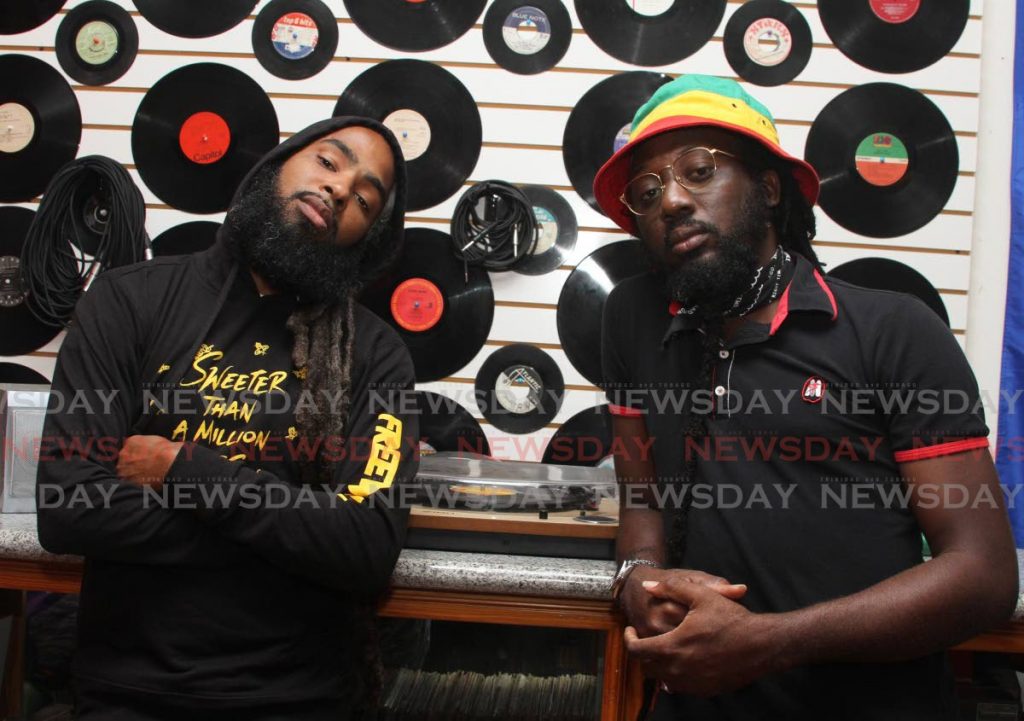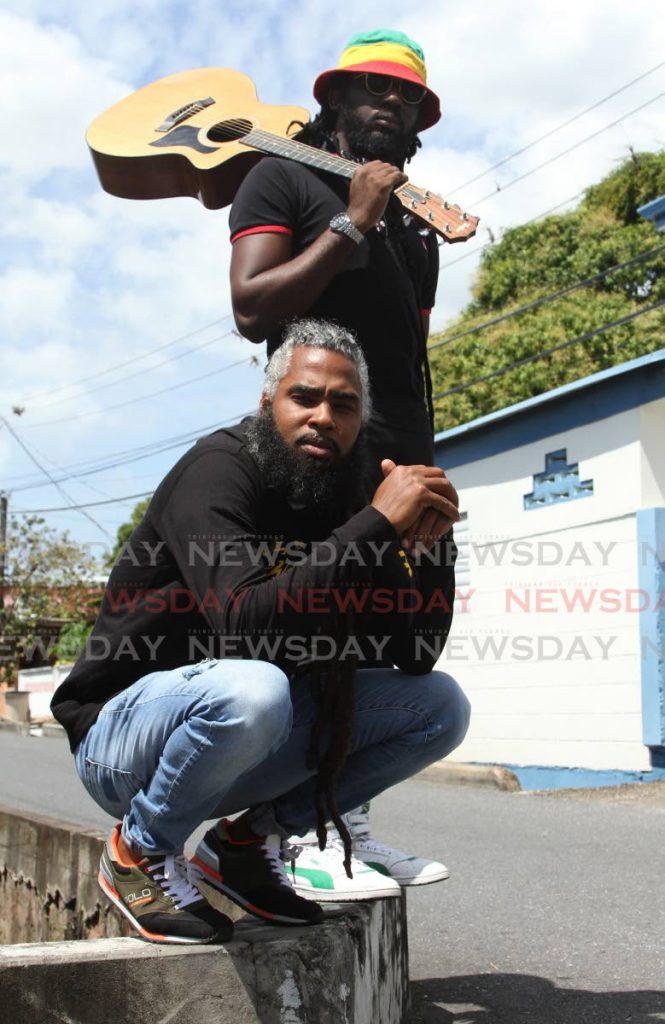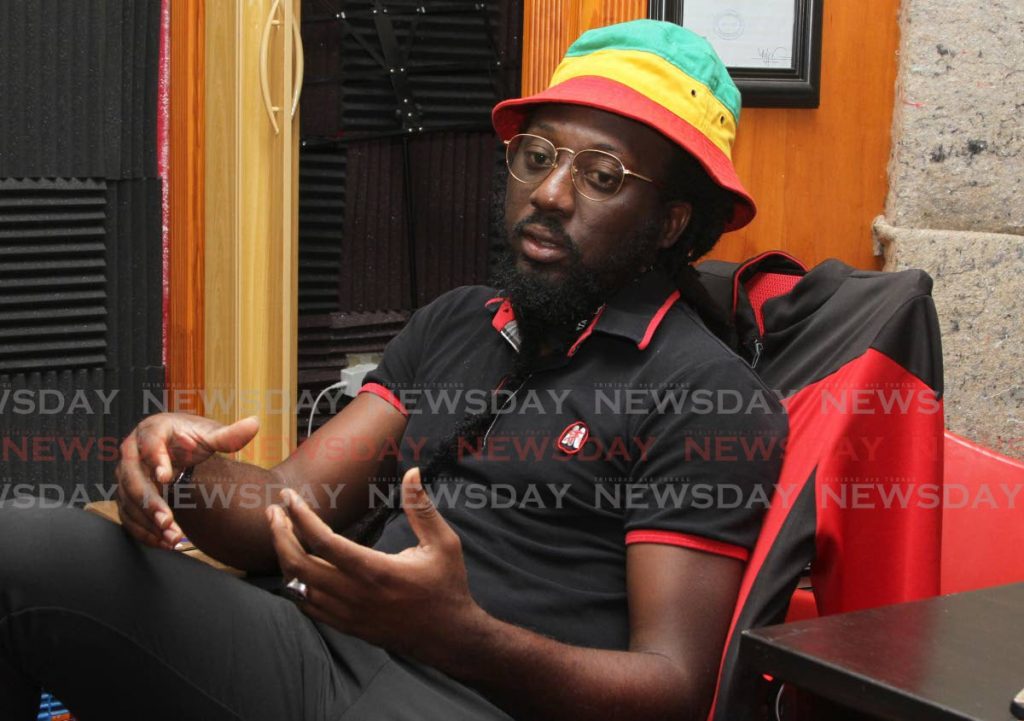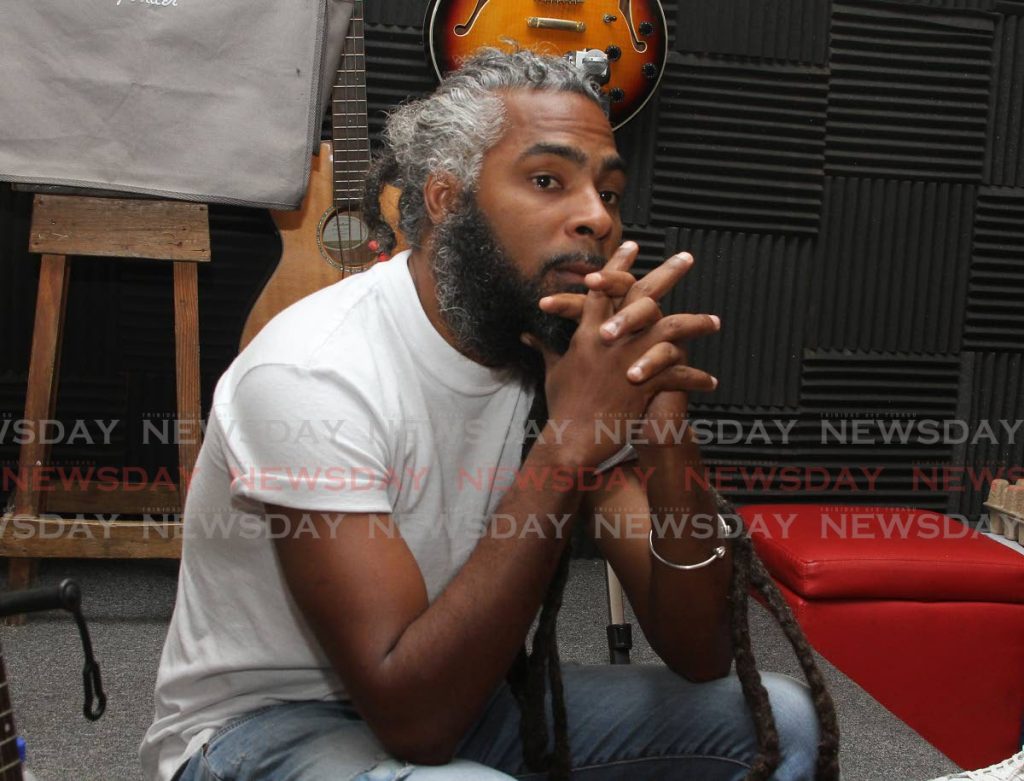Freetown feels the love

IN learning TT’s history, Muhammad Muwakil read that Belmont was once called Freetown. The town’s name symbolised the efforts of a group of indentured Africans who bought land and settled in the area. While they did not come as slaves, the mission of the indentured workers was to help enslaved Africans gain freedom.
Reflecting on this, Muwakil would set off to achieve his version of freedom which meant starting a journey to achieve a higher version of mental, physical and spiritual being. On this journey, he tapped into his creative being and founded Freetown Collective – an ensemble using multi-sensory creative approaches to deliver messages of freedom in all aspects of life.
“If I wanted to build somewhere called Freetown again, I had to start with myself and see what in me wasn’t free.
“Every time someone comes into contact with the group, they should in and of themselves become a Freetown,” Muwakil told Sunday Newsday, as he sat alongside vocalist and guitarist Lou Lyons, at the group’s El Dorado recording studio.
Over the past ten years the group has released creative visuals incorporating music inspired by multiple genres which represents their message of freedom and exploration. And while existing in a multi-genre space, for the most part their exploration in the soca genre was muted due to a lack of connection to soca music’s lyrical and sensory appeal.
Built on a philosophy of releasing creative energies within occupied spaces when spiritual vibrations align, the group released Feel the Love this year as its contribution towards a “new calypso” envisioned by local artiste Jimmy October.

On the song, a collaboration with DJ Private Ryan, Muwakil said, “We (TT) haven’t lost any love, it has always been there.
“I think the question is? Can you feel it? Because it’s there and we can’t feel it, then you need to check yourself. The music is supposed to prompt you to feel that love.”
To Muwakil and Lyons, love is a statement about being present in a moment, situation and space that is being occupied. Conceptualising the song over two years, Muwakil said he envisioned love powering people’s passion as they occupied their daily spaces in life working towards a higher being of themselves.
To the group, Carnival is a powerful time for people to connect with the vibrations of a message of feeling the love as people gather to enjoy themselves in a happy medium.
Lyons said while the world has become accustomed to seeing people gather for war or conflict, Carnival is unique.
“We want people to feel that. Take that moment (Carnival) to feel the way the earth is vibrating with music, the buzz of indistinct chatter and to feel the love. That don’t happen everywhere,” said Lyons.
On how the song fits into the new calypso movement, they said the goal is to create soca music that is free of definition and exists outside of the Carnival season.
“Lately we have been saying that we have to make a discussion between Carnival music and soca monarch,” said Muwakil.

He believes Carnival music is a sub-genre of soca and doesn’t define soca music. He said this is one reason why soca music may not play or connect with audiences all year wrong. Thematically and lyrically, the new calypso movement envisions soca music that can be relatable outside of a fete or club environment. Conceptually, Lyons said, the new calypso maintains the elements of traditional calypso music like storytelling and organic melodies but structurally the music aims to reflect elements of popular music, something he said more traditional calypsonians were able to master between the 70s and 90s. Lyons said the incorporation of heavy instrumentation and orchestrations like wind and brass into the more traditional calypso is an example of this.
“The way Frank Sinatra would swing his voice into melodies, you could listen to Sparrow and Lord Relator and you can hear some emulations from them,” said Lyons.
With hip hop and 808 drumbeats being key defining rhythmic structures in today’s popular music, they want to help infuse these modern production styles into the DNA of calypso to create new organic sounds and help provide a blueprint for up and coming artistes.
Asked if the new calypso concept was birthed as a response or reflection to the state of current soca music, Muwakil said, “Our works is not a direct reaction to anything that’s happening. We feel something in ourselves and we gravitate towards that space.

“We are not here to make some grand statement, but we have recognised that there is an imbalance. We are just doing our thing in whatever way we can to restore the balance without it being any kind of war against anybody else.
“If you’re talking about freedom and the music itself is bound to this or that you can’t really free anyone,” he added.
The group will release a five-song soca extended play (EP) on Ash Wednesday which will include the song Feel the Love. It is a strategic move by the group to show that their music, and in extension soca, can exist outside the Carnival season.
“Dropping Feel the Love inside Carnival and then having songs on the EP that was not in Carnival shows immediately that the EP will be straggling both worlds,” said Muwakil. They will also be working with Jimmy October and Kalpee to further develop the new calypso sound.
While no collaborations have been confirmed they have also spoken to soca artistes Sekon Sta and Preddy. Lyons said all the artistes they have interacted with have expressed a desire of seeing Carnival and the soca artform moving into a new realm.
“David Rudder was one of the last of the people who really injected a level of spirituality into the bacchanal (of Carnival) and show that you can straddle those both worlds.
“Unless and until people from our generation begin to show examples of that, there will be no example. If they (people who want to get involved in soca) see another example, you will see more writers and artistes coming out with different types of music. It gives people license,” said Muwakil.
Both Muwakil and Lyons said that unless there are different examples in soca music, interested people may not get involved if they don’t see themselves reflected in the “wine and wave” nature of the music.
“It’s impossible for us to think that one song this year can change it (the narrative of soca music). This is the beginning of intelligent conversations about soca music,” said Lyons.


Comments
"Freetown feels the love"